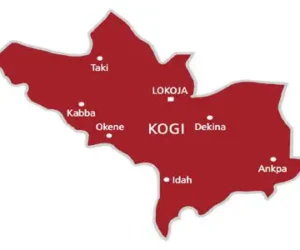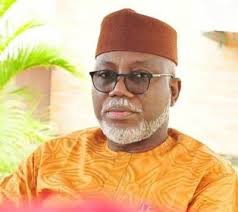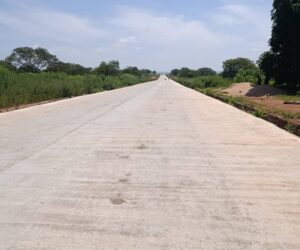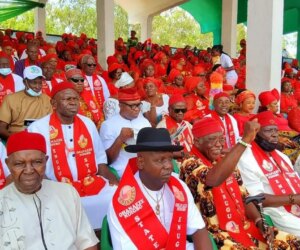…says Nigeria must shift from 75% out-of-pocket healthcare to pooled financing,
Charles Soludo, Governor of Anambra State has urged Nigeria to adopt smarter and more efficient health financing models, warning that billions of dollars are being lost annually to wasteful spending in the country’s $12 billion healthcare sector.
Speaking virtually at the National Health Financing Dialogue in Abuja on Thursday, Soludo said Nigeria must urgently reduce its heavy 75 percent reliance on out-of-pocket payments and embrace pooled financing and insurance schemes to achieve sustainable healthcare delivery.
While underscoring the urgent need to rethink the nation’s health financing framework, he stressed that the country must shift from wasteful expenditure to value-driven investments if it is to improve outcomes and ease the heavy financial burden on citizens.
He observed that Nigeria allocates less than five percent of its GDP to health while citizens continue to bear about 75 percent of healthcare costs directly from their pockets.
According to him, this imbalance undermines access and weakens the system’s sustainability.
“For every one dollar spent on health, we lose two to four dollars in returns, especially in developing countries.
“The science of spending is about quality. You can spend 20 or 30 percent of GDP on health and still get no results if the money is wasted. What we need is smart spending and efficiency”, Soludo remarked.
He stressed the importance of consolidating federal, state, and local government expenditures to provide a clearer picture of total public sector investment in health.
Fragmented budgeting and poor data, he said, limit accountability and hinder progress.
“If you can measure it, you can improve it. Data with integrity is critical,” he added.
Read also: FG to channel taxes on tobacco, alcohol, others to health financing – Oyedele
He disclosed that years of neglect had left about 80 percent of service delivery in the hands of private providers, but his administration has moved to reverse that imbalance.
“Public healthcare now accounts for 74 percent of service delivery in the state, a transformation achieved through deliberate investments and reforms”, he stated.
He explained that his government had refurbished more than 300 primary healthcare centres, equipping them with solar power and water facilities while recruiting over 2,000 medical personnel to staff them.
According to him, Anambra has also expanded telemedicine to ensure round-the-clock access to doctors, introduced free antenatal care and delivery services in public hospitals which have already benefited over 44,000 pregnant women and facilitated more than 38,000 births, and launched rural outreach schemes serving tens of thousands of residents.
“The state has expanded health insurance coverage, offering free MRI scans in public hospitals as part of a broader push to make services affordable and accessible”, he added.
The impact of these reforms, Soludo revealed, has public hospital attendance surged from about 200,000 in 2022 to over 1.1 million in 2024, while maternal mortality has declined sharply.
He described the turnaround as evidence that focused investments and smarter health spending can transform outcomes in a relatively short period.
The governor urged Nigeria to learn from other African success stories, particularly Rwanda, which has achieved 90 percent health insurance coverage compared to Nigeria’s less than 10 percent.
He insisted that the country must look inward for solutions rather than depend on foreign models.
“We must domesticate solutions. Instead of sending tens of thousands abroad for treatment, we can build systems here. This is the time for disruptive thinking,” he said.
Soludo further called for a national target to drastically cut down out-of-pocket payments while scaling up pooled financing and insurance coverage.
He proposed greater coordination among all tiers of government as they prepare their 2026 budgets, urging that measurable goals be agreed upon and pursued collectively.
“Let’s sit down and set clear targets for 2026, hold each level of government accountable, and ensure coordination like never before,” he declared.
The governor reiterated that health is the foundation of wealth and national stability.
He expressed optimism that Nigeria, with sustained reforms and strategic investment, could realistically aspire to match Rwanda’s 90 percent coverage benchmark in the near future.
On her part, Ipalibo Banigo, Chairman of the Senate Committee on Health, revealed that lawmakers have submitted a bill to review the National Health Act, with the aim of incorporating provisions that will guarantee better rescue mechanisms for vulnerable populations and secure sustainable funding for immunisation programmes.
She further disclosed that the National Assembly is taking steps to strengthen Nigeria’s health financing framework, expand universal health coverage and improve accountability in the sector.
She emphasised the need to increase the allocation of the Basic Health Care Provision Fund (BHCPF), describing it as critical to achieving universal health coverage and health security.
“For the first time in 2024, the vulnerable group fund established by law was appropriated and deployed to provide free treatment and prosthetic fistula repair in several hospitals across Nigeria,” she said.
Banigo explained that the committee is also working on establishing a catastrophic health fund to support Nigerians facing life-threatening health conditions such as cancer and complications associated with menopause.
To ensure accountability, the senator stressed that robust oversight mechanisms have been developed for teaching hospitals, regulatory agencies, and training institutions across the country.
“We begin each process by meticulously studying an agency’s budgets and actions across a three-year period, enabling us to drive resource-oriented reforms,” she said.
She also noted that part of the Senate’s health agenda is to build human resource capacity, adding that dedicated funds have been created to strengthen medical schools, postgraduate training colleges, and health worker training institutions to produce more skilled professionals and improve clinical outcomes nationwide.
On financing, Banigo called for legislation that leverages ongoing tax reforms to prioritise health spending, including the introduction of health-specific taxes that could generate revenue while tackling the growing burden of non-communicable diseases.
She further emphasised the role of technology in creating transparent systems for health data and fund tracking, citing the 2024 launch of the Stillbirths Dashpoint in collaboration with the Federal Ministry of Health and partners, which provides real-time data to prevent avoidable stillbirths.
Looking ahead, she announced that this year’s legislative health summit will place more focus on engaging state lawmakers to strengthen health financing and oversight at the sub-national level.
She urged the private sector, civil society and the media to sustain their role in building trust within the health system.
Banigo reiterated that health is the true wealth of the nation, stressing that investment in healthcare is not a cost but an economic and social necessity.
“We believe that with a re-imagined approach, we have the collective will to make change happen, so that every Nigerian can access quality and affordable healthcare without fear of financial ruin,” she said.









